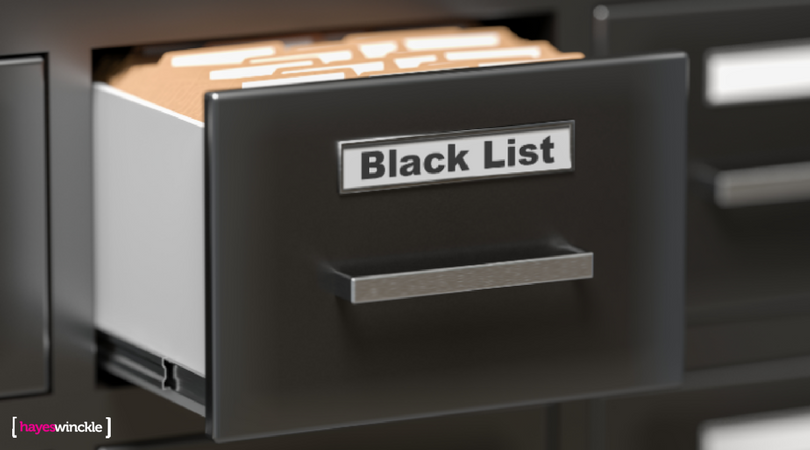
When you apply for a rental property, you may have heard that real estate agents and landlords sometimes use tenant databases to determine whether you have been “blacklisted” in the past by a previous real estate agent or landlord.
Tenant databases are operated by private companies who collect information about tenants and make it available to real estate agents and landlords, often for a fee. Many Australian tenants live in fear of being blacklisted, but the chances of it happening are slim. You have to do something pretty bad for an agent or landlord to lodge a complaint and blacklist you.
Below are some circumstances where that might happen.
Consistently Late Rent
The occasional late rent payment is unlikely to get you blacklisted, however if you are consistently late, there is a chance it could. Landlords can often have payments they need to meet on the property themselves (eg. mortgage repayments). When you fail to pay rent, the landlord loses income and has to cover their property expenses some other way.
You may be able to get away with paying your rent late a day or two on the rare occasion but if you are regularly late or have several months of rent owing, there’s a good chance you are on your way to getting blacklisted.
Leaving Your Bond to Cover Outstanding Rent
If you leave the property with rent owing which needs to be covered by your bond, it may get you in trouble. Some first time renters sometimes make the mistake of thinking that it is acceptable to pay off the final rent using the bond, but this is not the case.
Your bond is only returned to you once the landlord has signed off on an acceptable property condition report at the end of the tenancy. Ensure you read your tenancy agreement or ask your agent so you clearly understand the terms of your lease, including how rental payments can be made.
Significant Property Damage
Damage caused to your rental property from neglect or recklessness rarely sits well with landlords and property managers. While you are not responsible for reasonable wear and tear, you will be responsible for other damage you cause.
This can usually be resolved by using parts of the bond to pay for repairs and won’t land you on the blacklist. However, if you fail to rectify the situation, you may earn a blacklisting.
Other Reasons
There are a number of other circumstances where you may be placed on the blacklist, including:
- using the property for illegal purposes (e.g. illicit drug production)
- caused a danger to neighbours or another tenant
- sub-let or assigned the property to another person without the landlord’s consent
- breached a compliance order made by VCAT
Keep in mind that you cannot be listed if your name was not on the tenancy agreement or if the tenancy agreement hasn’t ended.
Have You Been Blacklisted?
A black listing can stay on a tenancy database for a maximum of three years. Before you can be listed, the agent or landlord must give you a copy of information that will be listed, give you at least 14 days to respond and consider any objections or changes from you.
When you apply for a rental property, the agent or landlord must tell you in writing if they will use a tenancy database to assess applicants. If you are listed, they must tell you in writing within seven days. They must provide information such as the name of the database, the name of each person listed, the person who listed the information and how the listing can be removed or corrected.
Contact us today for more information or click here to see our latest rental properties.
